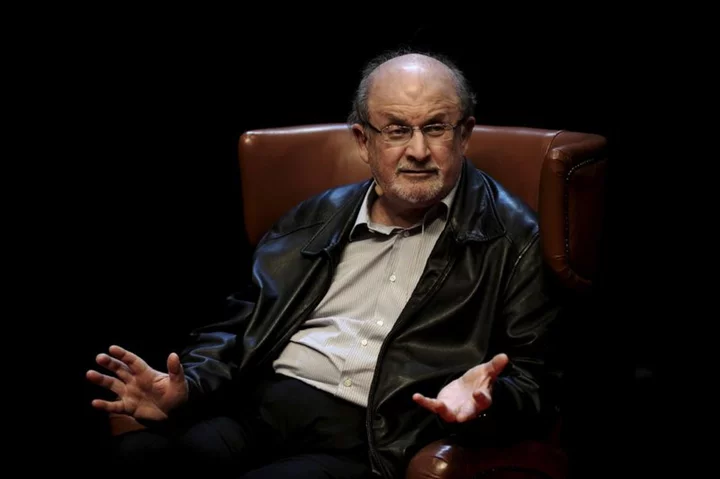
Salman Rushdie warns of threat to freedom of expression in West
By Farouq Suleiman LONDON Novelist Salman Rushdie has warned that countries in the West face the most severe
2023-05-16 22:56
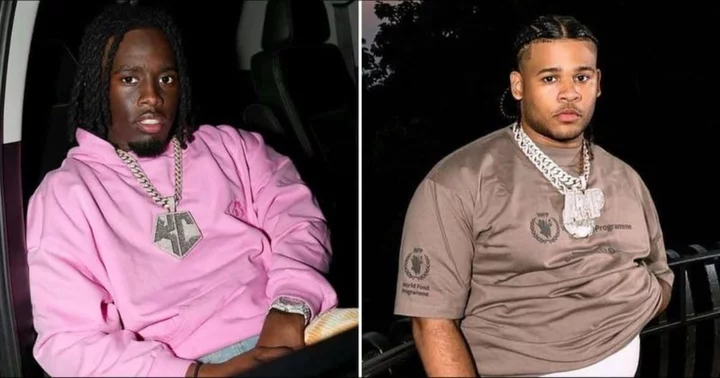
Kai Cenat puts 'skinny' Fanum's diet determination to test, Internet says 'he’s actually slimming down'
Kai Cenat recently garnered attention by putting Fanum's diet to the test
2023-09-22 17:52
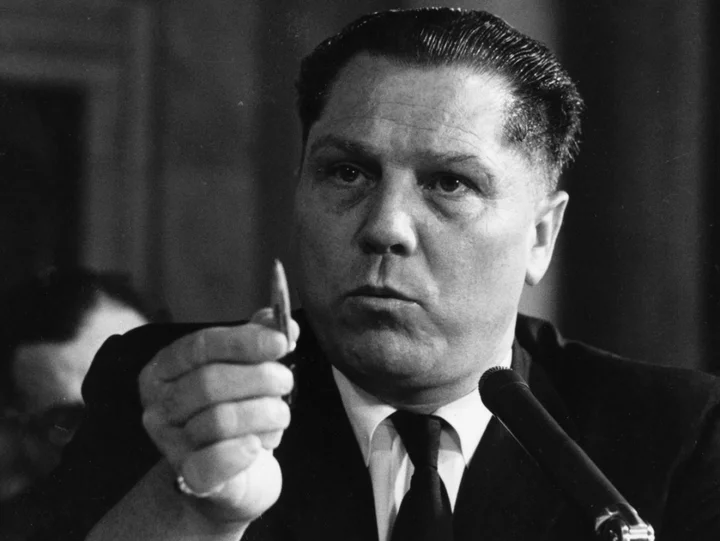
Jimmy Hoffa disappearance anniversary: What happened to long-lost union leader presumed murdered by the mob?
Jimmy Hoffa, the legendary American union organiser, disappeared from a parking lot outside of the Machus Red Fox restaurant in Bloomfield Township, Detroit, 48 years ago on Saturday 30 July 1975. Presumed dead since the same date in 1982, his body has never been found, no one has ever been charged and the case remains unsolved. Hoffa, 62, was last heard from at around 2.15pm that afternoon, calling his wife at their home in Lake Orion and a friend, Louis Linteau, at his office from a public payphone, griping that the two gentlemen he was supposed to be meeting for lunch had failed to show up. He was subsequently spotted talking to several other men nearby before being driven away in a maroon car that one eyewitness, a truck driver, told investigators could have been a Lincoln or maybe a Mercury Marquis. It might as well have been a hearse, for all the difference it made, for James Riddle Hoffa would never be seen again. His own vehicle, a green Pontiac Grand Ville, stood abandoned at the scene, just where he had left it. Long assumed to have been the victim of a mob hit, the visionary general president of the International Brotherhood of Teamsters (IBT) – who dramatically expanded the union’s reach, influence and coffers between 1957 and 1971, before being brought down by scandal – certainly had more than his fair share of powerful enemies and shady associates. Hoffa’s story – or, at least, versions of it – has frequently been told over the past half-century, often fictionalised through characters loosely based upon him in movies like Sergio Leone’s Once Upon a Time in America (1984) or more directly in Danny DeVito’s biopic Hoffa (1992) starring Jack Nicholson, James Ellroy’s Underworld USA novel sequence or Martin Scorcese’s recent The Irishman (2019) in which Al Pacino played the doomed labour leader. But none of those projects have come close to cracking one of the most enduring true crime mysteries in the history of American public life. What really happened to Jimmy Hoffa? Now that is a riddle. Born on Valentine’s Day 1913 in Brazil, Indiana, Hoffa’s Pennsylvania Dutch father John was a coal miner who passed away from lung disease in 1920 when his son was just seven years old, prompting the family to relocate to Detroit, Michigan, soon to become the epicentre of the mighty American auto industry. Realising he would need to grow up fast to support his mother, Hoffa left school at 14 to work as a stock boy for a grocery chain, where he soon took exception to the inadequate wages he received, the perilous terms of his employment and the inequality he saw all around him, which would only worsen in the aftermath of the Wall Street Crash of 1929 with the coming of the Great Depression. Having learned to stand up for himself against workplace injustice, Hoffa quit in 1932 to work as a professional organiser with the Local 299 chapter of the Teamsters union, representing Detroit’s truck drivers and warehouse operatives. As the organisation grew over the course of a combative decade, consolidating its power first locally, then regionally and finally nationally, Hoffa met the Polish girl who would become his wife, Josephine Poszywak, during a strike undertaken by non-unionised laundry workers in early 1937. They married that September. Hoffa’s growing reputation and networking smarts saw him named chairman of the Central States Drivers Council in 1940, president of the Michigan Conference of Teamsters in 1942 and then president of Local 299 by 1946, all without moving so much as a single truck himself. As a labour stalwart, Hoffa secured a draft deferment when the United States entered the Second World War by successfully arguing he would be of far greater service to his country organising industry at home than he might be deployed as a grunt abroad. That also meant he was well positioned to reap the spoils of the American economic boom of the Truman years. By 1952, he was appointed international vice president of the IBT, serving as deputy to Dave Beck, who was himself succeeding Daniel Tobin, who had led the union since way back in 1907. The IBT relocated its headquarters from Indianapolis to Washington, DC, three years later in order to be better placed to lobby Congress for its interests. It had never been more powerful. Then, in 1957, Beck was indicted, convicted and jailed on fraud charges after being hauled before John McClellan’s Senate Select Committee on Improper Activities in the Labour or Management Field. Hoffa was voted in as his successor as general president at the IBT’s convention in Miami Beach, Florida, that October. However, Hoffa’s profile within the labour movement had inevitably increased his exposure to organised crime and he had been arrested earlier that year for allegedly attempting to bribe a McClellan Committee aide, prompting the AFL-CIO to expel the Teamsters from its ranks in passionate opposition to his appointment. The air of notoriety surrounding Hoffa caught the attention of mob-busting US attorney general Robert F Kennedy during his brother’s presidency in the early 1960s and would see much of the organiser’s energies eaten up by legal scraps for much of that decade. He was indicted for jury tampering in Tennessee in May 1963 after again being accused of attempted bribery and was convicted the following March, sentenced to eight years in prison and a $10,000 fine. Four months later, while out on bail for the first offence, he was convicted at a second trial in Chicago, Illinois, on one count of conspiracy and three of mail and wire fraud for improper use of the Teamsters’ pension fund. This time he was sentenced to five years behind bars. After spending three years unsuccessfully appealing those convictions – while simultaneously expanding the union and bringing almost all on-road North American truck drivers together under one National Master Freight Agreement – Hoffa was sent to Lewisburg Federal Penitentiary in Pennsylvania on 7 March 1967 to serve a 13-year aggregate sentence. Despite the disgrace, he refused to resign and went on operating as IBT boss from Lewisburg, remaining in the role until 19 June 1971, when he was replaced by Frank Fitzsimmons, with whom he had a long association dating back to their Detroit days. Hoffa was released from prison on 23 December that year, having served fewer than five of his 13 years after Richard Nixon commuted his sentence on the condition that he refrain from engaging in union activity until 6 March 1980, a stipulation he was bitterly opposed to and battled in court in the hope of being able to wrestle back the Teamster’s presidency, unmoved to consider retirement by the generous pension settlement the organisation had handed him. The Mafia were among those opposed to his comeback ambitions, and one of their enforcers was Anthony “Tony Pro” Provenzano, a capo in New York City’s Genovese crime family with whom Hoffa had once been close but seemingly fallen out with while both men were incarcerated at Lewisburg. Provenzano is one of the men Hoffa is supposed to have been dining with at the Machus Red Fox on the day he vanished. The other was Anthony “Tony Jack” Giacalone, a local heavy who may have been dispatched as a mediator to oversee Hoffa’s appeal for support to Provenzano. Neither would admit to having seen the labour veteran in Bloomfield Township that day and both seemingly had credible alibis. What is known is that the car in which Hoffa is most likely to have been spirited away – a 1975 Mercury Marquis Brougham, after all – belonged to Giacalone’s son Joseph, who had lent it to one Charles “Chuckie” O’Brien, a Hoffa family friend. O’Brien may have been engaged to collect the old man in order to encourage a false sense of security. His fingerprints would later be found on a 7-Up bottle in Hoffa’s Pontiac, although he continued to deny any involvement until his death in 2020. When investigators examined the Mercury on 21 August, police dogs positively identified Hoffa’s scent in its upholstery, strongly suggesting he had ridden in it at least once. Later, in 2001, the advance of DNA technology enabled officers to locate a strand of his hair in the same car, although, again, that was not sufficient to trace it to a specific date. After years of federal investigation had resulted in 16,000 pages of documents spread over 70 volumes but no outcome, leaving Hoffa’s wife Josephine to pass away in 1980 without answers, the FBI’s opinion on what had happened would be outlined by Arthur Sloane in his book Hoffa (1991). In it, Sloane suggested the official verdict was that Northeastern Pennsylvania mob boss Russell Bufalino had ordered the hit and dispatched Thomas Andretta and the brothers Salvatore “Sally Bugs” and Gabriel Briguglio, alongside O’Brien, to carry it out. The quartet then either killed Hoffa inside the vehicle or drove him on to an unspecified location and executed him there, perhaps cremating his body to prevent its rediscovery. That broad outline was effectively confirmed on 16 June 2006 when The Detroit Free Press published the entire 56-page “Hoffex Memo”, an FBI dossier dating from January 1976 in which the bureau expressed its suspicions in writing, arguing the gangsters were concerned that a reinstated Hoffa might interfere with their control of the Teamster’s pension fund or even be persuaded to testify against them. There are numerous quibbles with that theory, however. Experts often argue that Hoffa was too high-profile a target for the mob to assassinate in such a public manner and that his hopes of returning to the leadership of the union amounted to little more than a pipedream by 1975, his name too tarnished to represent a serious threat. According to Sloane, former US prosecuting attorney Keith Corbett also believed that O’Brien was too unreliable to have played a part and that Vito “Billy” Giacalone, the younger brother of Tony Jack, was more likely to have been the fourth man. A completely fresh theory appeared in 2004 with the publication of Charles Brandt’s book I Heard You Paint Houses, the basis for Scorsese’s The Irishman, in which the author argues that hitman Frank Sheeran did the deed in an empty house in Detroit after Hoffa had been delivered into his clutches, the subject having confessed as much in old age. Bloodstains found on floorboards at the scene did not match Hoffa’s DNA, however, and it is often thought unlikely, as was the case with O’Brien, that an outsider might be trusted with such a delicate assignment by the notoriously tribal Italian-American syndicate. Another infamous mob killer, Richard “The Iceman” Kuklinski, claimed in his own 2006 memoir that he was responsible, having been paid the princely sum of $40,000 to whack Hoffa. Kuklinski claimed he drove the body to a New Jersey junkyard, sealed it inside a 50-gallon oil drum and set it on fire, later digging up the charred cadaver and placing it in the trunk of a car that was duly sold for scrap metal. That has likewise never been substantiated. As to the final resting place of Hoffa’s remains, multiple sites have been inspected over the decades without yielding a result, from the now-demolished Giants Stadium in East Rutherford (a tip-off hitman Donald “Tony the Greek” Frankos offered in a 1989 Playboy interview) to a landfill beneath the Pulaski Skyway in Jersey City and even the Renaissance Building in downtown Detroit, now the 73-storey home of General Motors. A farmer’s field, a swimming pool and a suburban driveway in Michigan have all been proposed and discarded while the wildest speculations imagine the missing man tossed from a plane by corrupt federal marshals into the Great Lakes (a theory courtesy of Hoffa bodyguard Joseph Franco, who had a book to sell) or ground up and disposed of in one of the quieter swamps of the Florida Everglades, an idea pitched to the Senate by self-described murderer Charles Allen in 1982. Sadly, we may never know the truth about how Jimmy Hoffa, at one time one of the most famous faces in America, came to vanish into thin air, blown away on the breeze like an old parking ticket, never to be seen again. Read More FBI say no sign of Jimmy Hoffa’s body under New Jersey bridge Events in the disappearance of former Teamsters head Jimmy Hoffa From serious to scurrilous, some of the many Jimmy Hoffa theories
2023-07-28 15:18

Climate change keeps making wildfires and smoke worse. Scientists call it the 'new abnormal'
As smoky as the summer has been so far, scientists say it will likely be worse in future years because of climate change
2023-07-01 14:50

Berlin police investigate Roger Waters for possible incitement over concert outfit
Police in Berlin say they have opened an investigation of Roger Waters on suspicion of incitement over a costume the Pink Floyd co-founder wore when he performed in the German capital last week
2023-05-26 23:53
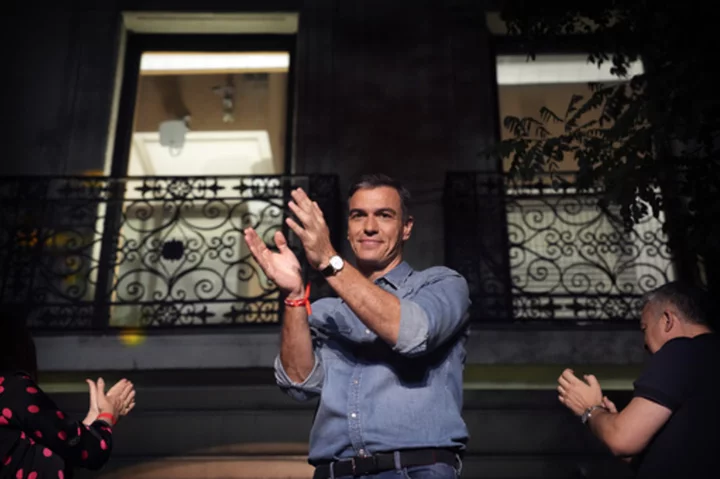
Spain's election yields a distorted mirror of the success and failure of its political leaders
The outcome of Spain's elections shows the country is politically split down the middle
2023-07-24 12:49

Adin Ross faces backlash from MoistCr1TiKaL over his 'disturbing' remark surrounding IShowSpeed's genitals
MoistCr1TiKaL hit back at Adin Ross while reacting to IShowSpeed's recent situation of him accidentally flashing on a YouTube live stream
2023-08-19 18:20
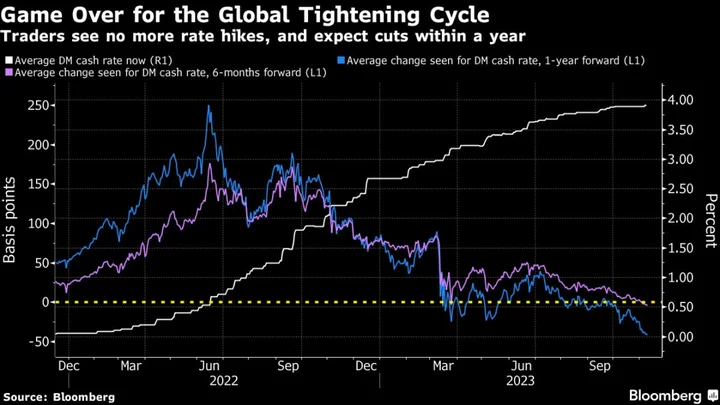
Markets Price an End to Interest-Rate Hikes Across the World
Rates traders are betting that the steepest global tightening cycle in a generation is over and that monetary
2023-11-09 17:45
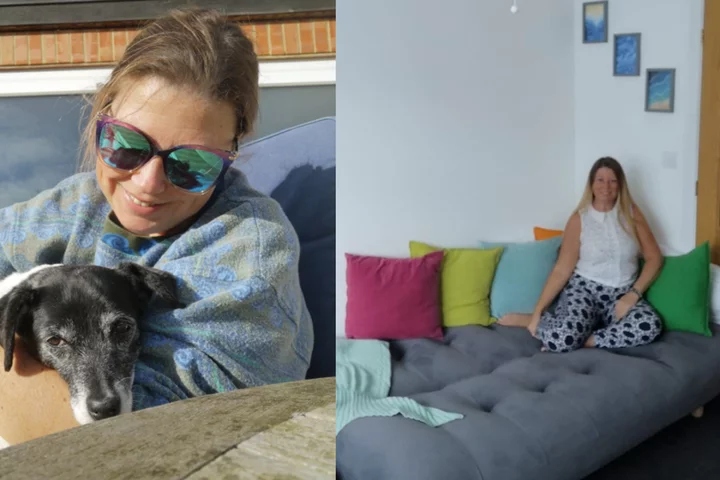
Meet the former therapist making a living as a professional cuddler
A professional cuddler who makes a living giving clients hugs has said people travel from all over the globe to receive the cuddle therapy she offers which is “far less intimate than a massage” and helps people from “all walks of life”. Natasha Wicks, 44, from Coventry, West Midlands, says that despite criticism, cuddling is scientifically proven to release happy hormones like dopamine and that a lot of her clients are “the big spoon in life” and go to her for emotional support that they do not have at home. As such, many of her clients are caregivers and most of them join Natasha for two-hour hugging sessions, costing £70 an hour. The sessions vary depending on what the client wants, some having “emotional hugs”, others talking more and some wanting to “sit at opposite ends of the sofa with our legs and feet entwined”. Natasha became a cuddle therapist in 2015 and, while she has had comments online from people criticising the practice, she said that her family and friends were unsurprised when she first started giving professional cuddles. She said: “They all said to me that I give the best cuddles so it’s not surprising that I’d start doing it as a job. “It’s very much what I do, I help people and want to make people feel better. It’s a natural thing when someone is going through a tough time to want to give them a hug. “Cuddle therapy might not be as widely accepted in society but it’s far less intimate than other things like massages which are seen as normal.” Prior to becoming a cuddler, Natasha originally trained as a CBT therapist and counsellor. She said: “There’d be situations where I would be talking to someone and they’d really need a hug, but obviously, you’d have professional boundaries in place and it wouldn’t have been appropriate. “It was just a really natural thing. One client had finished her final session and we had agreed that she wasn’t my patient anymore so we hugged goodbye. She said to me that she’d wanted to do that for a long time and I thought ‘me too’.” Looking into cuddle therapy, which she said was increasing in popularity in 2014, Natasha took a training course. By 2015, she was a qualified cuddler and started taking on new patients for cuddle sessions. Natasha provides a minimum session of one hour but said most people go for at least two hours, sometimes longer if they are receiving more than one type of therapy. She said: “I always give people a hug on the doorstep when they arrive and then they’ll come in and relax, and we’ll have an initial chat about what brings them here. After that, I’ll put on some ambient music and we’ll have a cuddle on my cuddle sofa. “It can be daunting coming into a stranger’s house and I can tell the difference in them from arriving to leaving. The first hug they might be angled away from me but when we’re hugging goodbye, I can get my head in between their neck and shoulders and you can almost feel that a weight has been lifted from them.” There is not one type of person that visits Natasha for cuddles, but she says that a lot of her clients are caregivers. She said: “There’s all sorts of people who come for a cuddle, from people who have moved away from home for the first time and just want a mum hug all the way to people in their 80s. “I’m inclusive of all genders and all ages. I get a lot of clients who are the carers of their family and they are so busy looking after other people, and probably giving the hugs and support to other people, that they don’t have that for themselves. “A lot of people that come to see me are generally people are the big spoon in the life – they take care of others and don’t want to show a vulnerable side to people because they don’t want people to worry that they can’t cope. “I get a lot of carers, a lot of NHS staff, a lot of mums, a lot of people that are in a world where they have to be the strong one in the situation and they just want to be able to come here and let their guard down.” Natasha’s priority is to make people feel at ease when they arrive as she said it can be “nerve wracking” turning up at someone’s house for a hug. Setting out clear boundaries prior to meeting, the therapist has said that the patients she has welcomed into her home have all been respectful. She added: “I always say to people that when your body relaxes, your tummy might crumble and mine might too, but that people don’t need to worry about it. Sometimes people fall asleep and they might snore or fart, it’s just natural things that happen. It’s happened twice where someone has got an erection and that’s fine, I have boundaries and we’ll just change position. “I want people to feel reassured that, as soon as they get in, they feel comfortable.” Despite the unconventional therapy, when Natasha first took on cuddle clients, she said her family were completely “unsurprised” and the step from CBT therapy to cuddle therapy was a “natural evolution”. While Natasha focuses her time on a holistic approach for treating people, she noted that there is also neuroscience behind cuddles. According to the 44-year-old, physical touch activates the brain’s orbitofrontal cortex and cuddling releases oxytocin, dopamine and serotonin. Now, Natasha also does EMDR therapy and is a mental health swim host, and has clients travel from all over the globe to receive her hugs. She said: “Working from Coventry is brilliant because I’m only nine minutes on the train from Birmingham Airport and people come to visit me from all over. I get a client from Belgium, someone from Ireland and people from all over the UK who come to see me. “I wanted to find a sofa bed that just looked like a big comfy sofa for cuddle sessions. I’d started off with a big L shaped sofa but after about five years, it was sagging a bit, there’d been a lot of healing done on that sofa and it was time for a new one. “Now I have a sofa bed in my living room that I use as my cuddle sofa. It’s in the living room and it’s used for everyday life, watching TV with my partner, having people round and also for my work.” Breaking down the taboo around cuddle therapy, Natasha hopes more people will embrace the alternative treatment. She added: “As it’s become more popular, more people are becoming qualified as cuddlers and I think that’s great. “I’ve had comments online before of people thinking it’s weird or not understanding but there are other things we accept in society that are much more intimate than cuddles, like massages. “It’s not weird, it’s actually a really lovely thing to be able to make another soul feel better for a while.” Read More Charity boss speaks out over ‘traumatic’ encounter with royal aide Ukraine war’s heaviest fight rages in east - follow live Meet the professional cuddler charging £70-an-hour to hug ‘the big spoons in life’ New warnings about ‘concerning’ rise in at-home cosmetic dentistry What is ‘beer tanning’ and why are experts warning against it?
2023-07-26 22:58

Judge blocks California law meant to protect children's online safety
By Jonathan Stempel A federal judge on Monday blocked California from enforcing a law meant to protect children
2023-09-19 08:23

Justice Jackson reports flowers from Oprah, designer clothing as Thomas delays filing disclosure
Justice Ketanji Brown Jackson has disclosed that she received a $1,200 congratulatory floral display from Oprah Winfrey and $6,580 in designer clothing for a magazine photo shoot in her first months as the first Black woman on the Supreme Court
2023-06-08 03:53
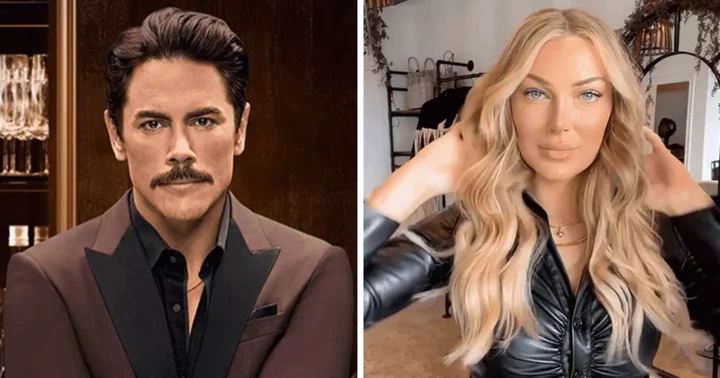
Are Karlee Hale and Tom Sandoval really dating? Influencer breaks her silence on relationship rumors with 'Vanderpump Rules' star
Karlee Hale addresses her alleged relationship with Tom Sandoval while he recently got caught calling Raquel Leviss after cheating scandal
2023-05-30 16:20
You Might Like...

12 homes torn apart by landslide on Southern California's Palos Verdes Peninsula

CNN names Kaitlan Collins to fill prime-time vacancy in Chris Cuomo's old slot
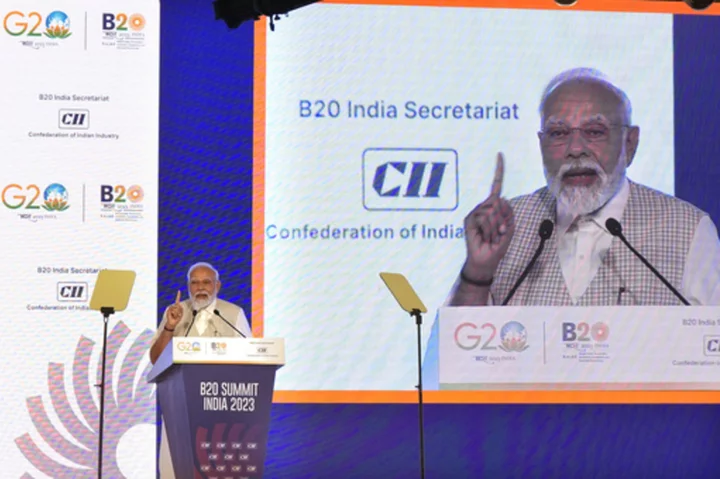
Modi says India as G20 host will be inclusive and invites African Union to become permanent members
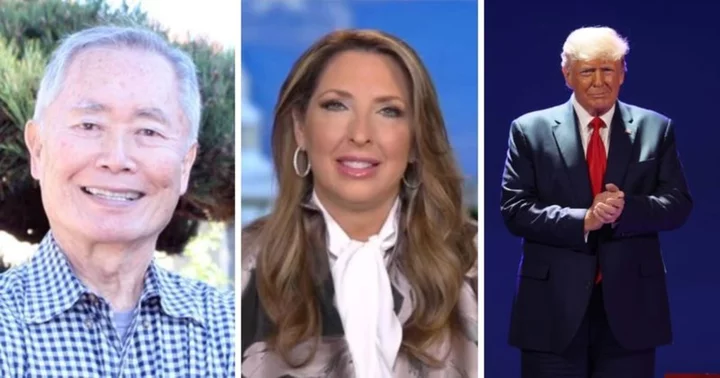
'Will of the voters? Crazy': George Takei's potshot at Ronna McDaniel and Donald Trump backfires spectacularly
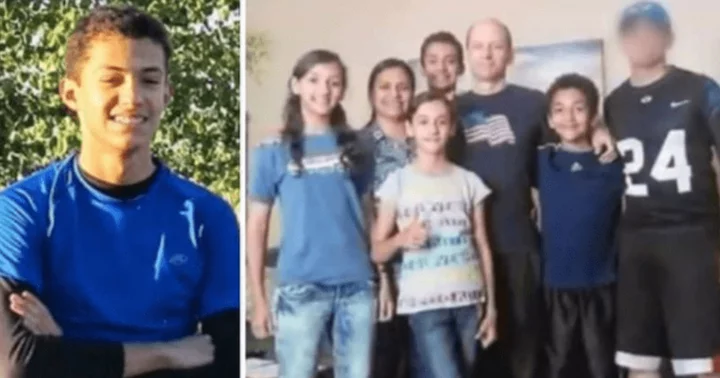
Who is CJ Haynie? Teen killer gets over 100 years in jail for murdering his mother and siblings

Ukraine war: US allows transfer of Danish and Dutch F-16 war planes to Kyiv
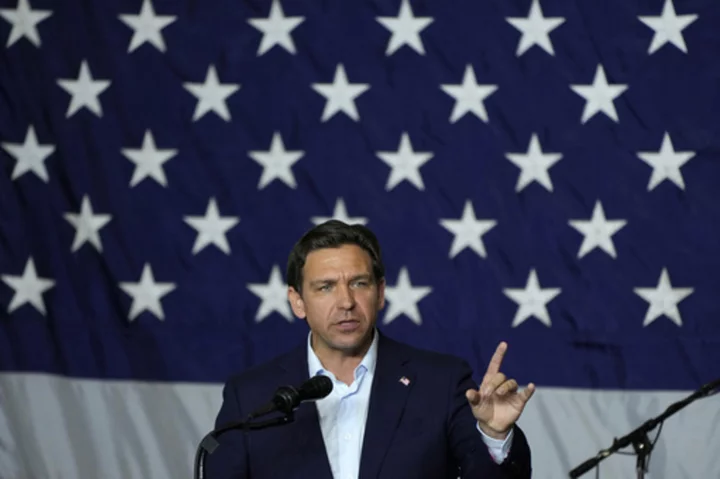
Florida Gov. Ron DeSantis suspends Orlando state attorney. He says she neglected her duties
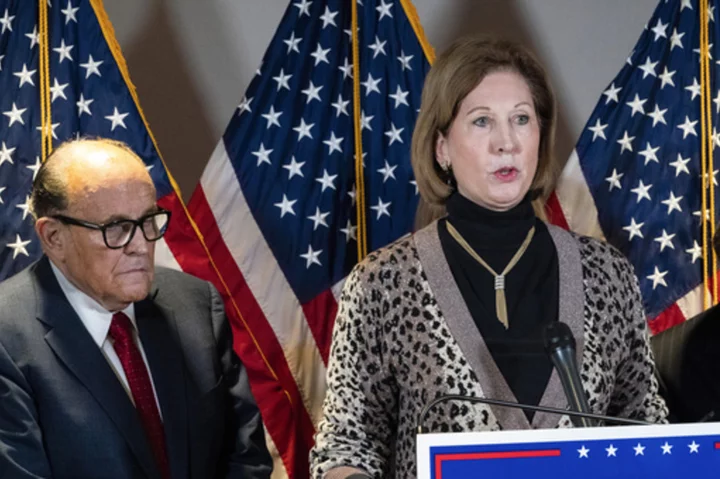
Sidney Powell vowed to 'release the Kraken' to help Donald Trump. She may now testify against him
